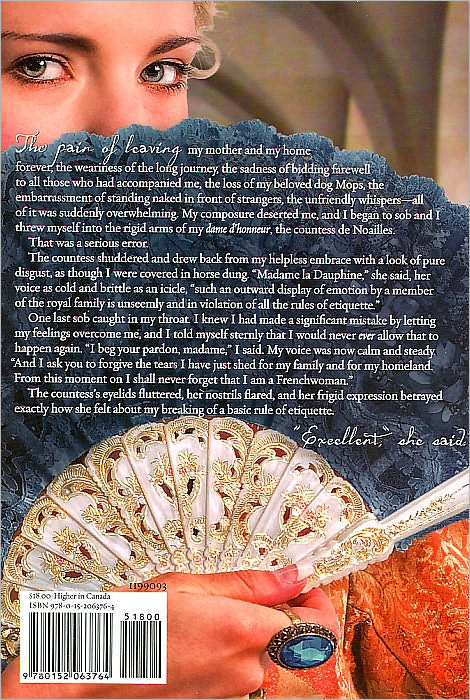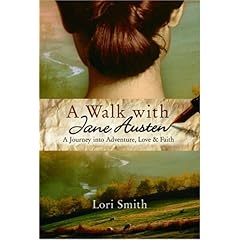Here's a post that originally ran in the now-defunct Edge of the Forest
Catherine de’Medici is mostly known as the power behind the throne during the reigns of her ineffective sons, the kings of France. History has also placed her with the blame of the St. Bartholomew’s massacre in which over two thousand Huguenots were killed. Not much is known about the early life of Catherine de’Medici, beyond her use as a pawn in various Florentine power struggles.
In this latest installment in her Young Royals series, Carolyn Meyer’s imagination fills in the gaps in her story. Orphaned as an infant, she is known as Duchessina, the little Duchess after her duchy in Urbino. She grows up in Florence, in the Plaza de Medici under the watchful eye of her cardinal uncle, the future Pope Clement VII. After her guardian uncle assumes the pontificate, Italy is plunged into several wars against the Holy Roman Emperor, Charles V. Catherine is eight at the time and does not completely understand the political machinations at play as the citizens of Florence take the excuse to reassert their independence from Medici rule. Catherine is taken as a war hostage and sent to an anti-Medici convent. She then changes convents from time to time as the turmoil mounts and recedes. Eventually, Catherine is taken to Rome to be with the Pope as he arranges her marriage to the French dauphin.
Once in France, Catherine’s life does not become easier. It is obvious her new husband’s affections lie elsewhere. But, with the skills she has learned, she makes a place for herself.
This is an exciting tale with historic splendor, adventure, love, and true friendship. Unfortunately, the historical notes at the end act mainly as an epilogue to her life, not as illuminating background information to the events of the book. During the Italian Wars, the young Catherine does not fully understand the political maneuverings at play, and as she is the narrator, neither does the reader. Also, there is nothing to let the reader know which details of the story are fact, and which sprung from Meyer’s mind. It is also interesting to note that Catherine’s speaking voice is the same at the age of three as it is as an adult.
(note-- I did go an read an adult biography of her, Leonie Frieda's Catherine de Medici: Renaissance Queen of France, which I reviewed here in 2007)
Book Provided by... The Edge of the Forest, for review
Links to Amazon are an affiliate link. You can help support Biblio File by purchasing any item (not just the one linked to!) through these links. Read my full disclosure statement.
Viewing: Blog Posts Tagged with: Carolyn Meyer, Most Recent at Top [Help]
Results 1 - 5 of 5
Blog: Biblio File (Login to Add to MyJacketFlap)
JacketFlap tags: YA, Edge of the Forest, Fiction, historical fiction, series, Renaissance, Carolyn Meyer, Young Royals, Add a tag
Blog: Becky's Book Reviews (Login to Add to MyJacketFlap)
JacketFlap tags: YA Fiction, YA Historical Fiction, dysfunctional families, Simon and Schuster, Carolyn Meyer, 2011, review copy, Books Reviewed in 2012, Add a tag
Cleopatra Confesses. Carolyn Meyer. 2011. Simon & Schuster. 304 pages.
From the prologue: My enemy stands at the gates of my city, Alexandria in Egypt.
From chapter one: I gaze out at the sea and remember a summer day in the reign of my father, King Ptolemy XII. In this memory I am ten years old. It is the season of the Inundation, the time of year when the Nile overflows its banks, flooding the fields and renewing them for planting.
While Cleopatra Confesses wouldn't be my absolute favorite Carolyn Meyer novel, I can easily say that it was a good book. I found it compelling. True, most readers will know the ultimate fate of Cleopatra. But still, this historical novel for teens focuses on Cleopatra's journey to that event. The novel is divided into sections. We see her as a young child who loves and adores her father. We see her as a young teen who distrusts her older sisters who proclaim themselves queens when their father enters exile. We see her fear for her life, but meet fear with determination, with strength not weakness. We see her happy reunion with her father, we see her share some of the glory with her father, with her brother, as she does become Queen. We see her as she becomes a mature woman who desires love and passion in addition to power. Julius Caesar gets a little attention--a chapter or two. But if you're expecting this to be a love story--though a tragic, slightly unusual love story--between Mark Antony and Cleopatra, you'll be disappointed. Just an epilogue brings readers up to date. I actually was pleased with this. Because the other story has been told again and again and again. But this story that focuses on her early years, on the rivalry between her and her sisters, on her unhappy marriages to her much, much younger brothers, on her early years as Queen, that is the story that is most worth telling. Especially for this audience.
Read Cleopatra Confesses
- If you're a fan of Carolyn Meyer
- If you're a fan of historical fiction, particularly historical fiction set in Egypt
- If you're interested in the Roman Empire
- If you're a fan of Shakespeare (Julius Caesar and Antony and Cleopatra)
- If you're interested in politics and power struggles--particularly within families!
© 2012 Becky Laney of Becky's Book Reviews
Blog: Becky's Book Reviews (Login to Add to MyJacketFlap)
JacketFlap tags: YA Fiction, series, YA Historical Fiction, YA Romance, Carolyn Meyer, 2010, French Revolution, Houghton Mifflin Harcourt, borrowed book, Add a tag

Bad Queen: Rules and Instructions for Marie-Antoinette by Carolyn Meyer. 2010. [April 2010] Harcourt. 420 pages.
The empress, my mother, studied me as if I were an unusual creature she'd thought of acquiring for the palace menagerie. I shivered under her critical gaze. It was like being bathed in snow.
I was not disappointed in Carolyn Meyer's latest book. This historical novel is based on the rise and fall of Marie Antoinette. It is the story of the French Revolution and the monarchs that fell as a nation revolted.
Each chapter is a numbered rule. So you'll see advice such as:
"You must become fluent in French"
"You are born to obey, and you must learn to do so"
"Never behave in a manner to shock anyone"
"An outward display of emotion violates all the rules of etiquette"
"You cannot change the rules of etiquette"
"It is not your role to defy accepted fashion"
"You must control your spending"
 Chapters, of course, don't have to be titled anything in a book. But in this case I thought it was a nice touch. It helped set the tone of the book, in my opinion. (I also loved that the chapters were quick!) Though Marie Antoinette is given plenty of advice--by her mother and her Austrian family, by her husband's family, by royal advisers, etc. Marie doesn't always follow it! She definitely had a strong will and didn't like being told what she could and couldn't do. Especially when some of the rules didn't make much sense to her. Why couldn't she dress the way she wanted? Why did everything have to be done a certain way, the way it had always been done?
Chapters, of course, don't have to be titled anything in a book. But in this case I thought it was a nice touch. It helped set the tone of the book, in my opinion. (I also loved that the chapters were quick!) Though Marie Antoinette is given plenty of advice--by her mother and her Austrian family, by her husband's family, by royal advisers, etc. Marie doesn't always follow it! She definitely had a strong will and didn't like being told what she could and couldn't do. Especially when some of the rules didn't make much sense to her. Why couldn't she dress the way she wanted? Why did everything have to be done a certain way, the way it had always been done?The Bad Queen is told in first person through the eyes of Marie Antoinette. Towards the end of the book, as the family's fate becomes more certain, when she knows her days are numbered and the end will be anything but pretty, the narration switches to Marie's daughter.
Readers get a behind-the-scenes look at what it's like to be royalty, what it's like to live in luxury, what it's like to be someone that everyone loves to hate.
I found this one to be a compelling read. Even though I knew what was coming, I just had to keep reading!
This isn't the first time Carolyn Meyer has written about royalty. There is Anastasia: The Last Grand Duchess; Kristina, The Girl King; Doomed Queen Anne; Mary, Blood Mary; Beware, Princess Elizabeth; and Patience, Princess Catherine; and Duchessina: A Novel of Catherine de Medici. I've read and enjoyed them all.
What do you think of the cover of this one?
© Becky Laney of Becky's Book Reviews
Blog: Becky's Book Reviews (Login to Add to MyJacketFlap)
JacketFlap tags: "I" Titles, Carolyn Meyer, music, YA Historical Fiction, 2008, "M" Authors, Add a tag

 Meyer, Carolyn. 2008. In Mozart's Shadow: His Sister's Story.
Meyer, Carolyn. 2008. In Mozart's Shadow: His Sister's Story.
"In the beginning, when I was four, Papa sat beside me at the clavichord, the music book open to minuets and other short pieces he had prepared for me, and he taught me how to play." (7)
In Mozart's Shadow is a novelization of Nannerl Mozart. Several years older than Wolfgang Amadeus Mozart, she was a talented, gifted musician in her own right. When Wolferl showed talent and promise as well, the family--mom, dad, brother, sister--went on the road together. The children performed together. Nannerl would have her time to shine. Wolferl would have his spotlight. They'd perform together as well playing duets. Their father would join in on occasion as well. Music was the family business. The Mozart's world revolved around music. Unfortunately, while many many people enjoyed their performances, money never really quite rolled in the way the parents hoped. They wanted fame, yes, but they also wanted money. Lots and lots of money. The father had a habit of living beyond his means, beyond his income. He wanted the best of everything. He thought that by spending money he would look aristocratic. And he thought that by looking aristocratic, people would give him more money.
These times together on the road as a family performing music were some of the happiest of her life. Unfortunately, the good times would not--could not--last. Sooner than Nannerl would have liked, her father stopped touring as a family. Wolferl, her younger brother, was the rising star now. He was the one that everyone hoped and prayed would be a big STAR. If the family were to make a fortune, to have a rise in social standing--fame, glory, success, money--it would be because of Wolfgang Amadeus Mozart. And the father didn't want Nannerl along for the journey--not even in the background.
Nannerl's hopes and dreams would not disappear or dissipate overnight. No, she clung to her dreams, her hopes for many years. Many. But her happiness was not to be. Not at all. Her life was full of disappointments, shattered dreams, and losses. It brings to mind Langston Hughes' "A Dream Deferred." Though she was talented, she was a she. There were not any famous women musicians, keyboard players. Women singers occasionally made it big and became stars. But not musicians. There was no place in that society for a grown woman to succeed in the world of men. The best she could hope for--if she wanted to keep music in her life--was to teach music. That and to play privately for family and friends and acquaintances and such. But there would be no career as a professional musician.
Though Nannerl's story is far from happy, the book itself is rich in detail. The people. The places. The culture and society. Hair. Fashion. Gossip. Those who love historical fiction will find it interesting I'm sure.
P
a
r
t
i
a
l
S
p
o
i
l
e
r
Nannerl's life is one of frustration. Raised by a domineering, controlling, authoritative, demanding father--worst stage dad ever perhaps--she was kept reined in even at home. She was in her early thirties and her father would not even consider letting her get married. He turned away any suitors that came around. She did fall in love. She did hope to marry. There was a man very much in love with her. But her father said never in a million years. She did eventually marry, but she never found love in that marriage. She married a man just as abominable--if not more so--than her father. Her true love stayed true to her even though they could never be together.
I'm not quite sure how well-known the existence the life of Mozart's sister, Nannerl, (Maria Anna) is generally speaking. (I was going to say with teens. But then I got to thinking...how many adults are familiar with her? I just don't know. I certainly didn't learn of her until a year or so ago. And that was just through a conversation with a friend. She mentioned her casually. So maybe I was clueless and the rest of the world is more aware. Or maybe she's just well known in certain sets.)
Blog: Deliciously Clean Reads (Login to Add to MyJacketFlap)
JacketFlap tags: Jane Austen, memoir, adult, Jane Austen, Pride and Prejudice, review by Emily, Lori Smith, Northanger Abbey, A Walk with Jane Austen, Emma by Jane Austen, review by Emily, Pride and Prejudice, Lori Smith, Northanger Abbey, A Walk with Jane Austen, Emma by Jane Austen, Add a tag
A Walk with Jane Austen by Lori Smith
Review by Emily from Whimsy Books and Whimsy Daisy
from Whimsy Books and Whimsy Daisy
A Walk with Jane Austen is a quiet ride through Jane Austen’s world. This book is not what I expected it to be. It is less about Jane Austen and more about author Lori Smith. It is a soft memoir. Smith’s talented writing weaves countless connections between the life of Jane Austen and her own.
Lori Smith finds herself growing older and unmarried, a position she never expected to find herself in. She tours England to visit the remaining sites of Austen’s world. During this trip, Smith discovers who she is, why we face challenges, and how faith can get us through.
From Publishers Weekly Starred Review. In this engaging, deeply personal and well-researched travelogue, Smith (a PW contributor) journeys to England to soak in the places of Jane Austen's life and writings. The book is sure to ride the wave of Austen-philia that has recently swept through Hollywood and a new generation of Americans, but this is an unusual look at Jane Austen. Readers will learn plenty of biographical details-about Austen's small and intimate circle of family and friends, her candid letters to her sister, her possible loves and losses, her never-married status, her religious feelings, and her untimely death at the age of 41. But it is the author's passionate connection to Jane-the affinity she feels and her imaginings of Austen's inner life-that bring Austen to life in ways no conventional biographer could. Smith's voice swings authentically between the raw, aching vulnerability of a single Christian woman battling a debilitating and mysterious chronic illness and the surges of faith she finds in the grace of a loving God. And yes, she even meets a potential Darcy at the start of her journey. This deliciously uncertain romantic tension holds the book together as Smith weaves her own thoughts, historical research, and fitting references to Austen's novels into a satisfying whole.




Cleopatra's Moon by Vicky Alvear Shecter is a good book too. Rather than being about Cleopatra, it's about her daughter, Cleopatra Selene.
Cleopatra's Moon sounds really good. I saw a book once that might have been that one that I almost picked up. I love historical fiction and I loved the last book I read about Cleopatra but, their was to much emphasis on the romance I think. So, I'm ready for a different point of view. Thanks again for the great review! :)